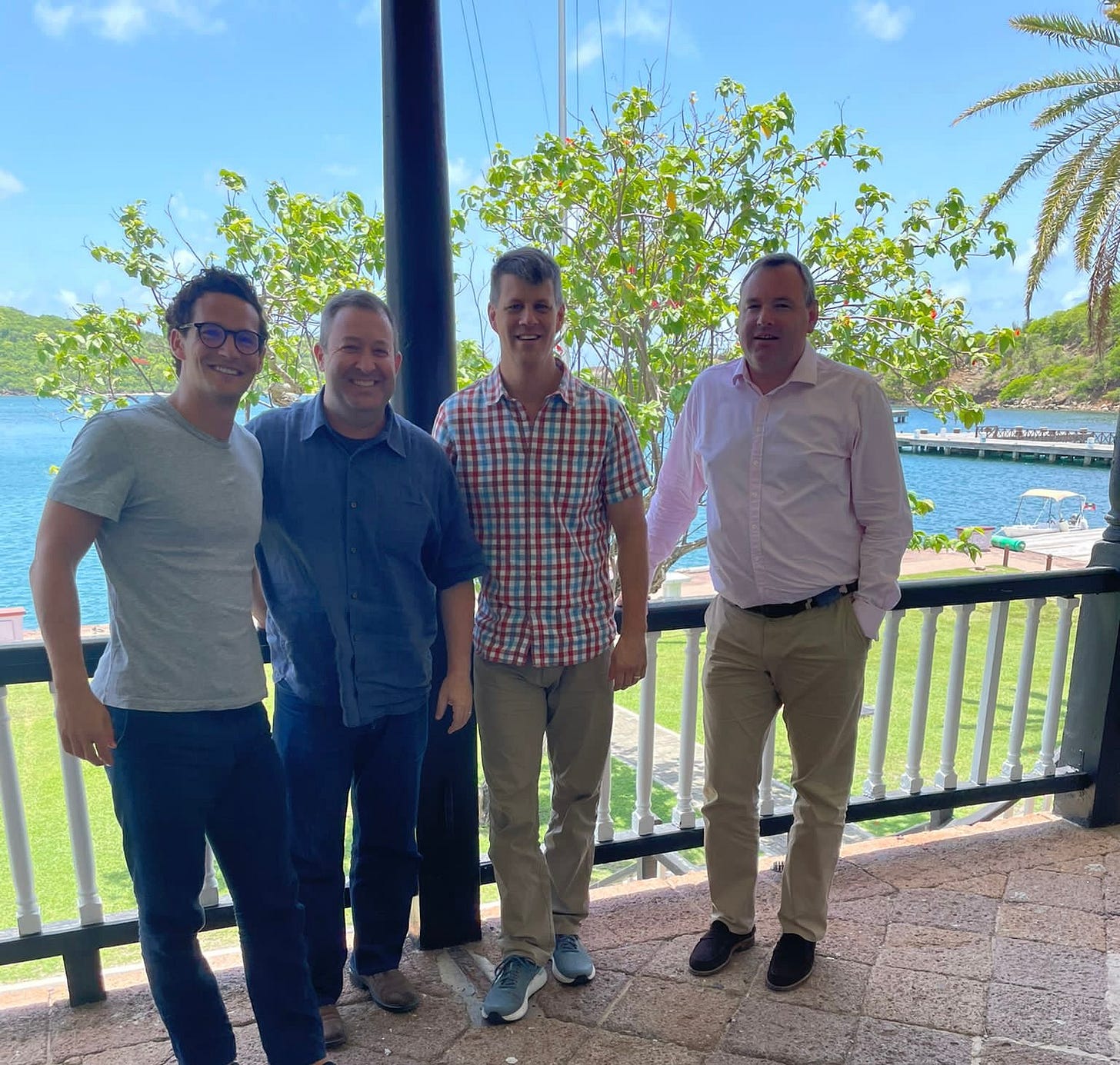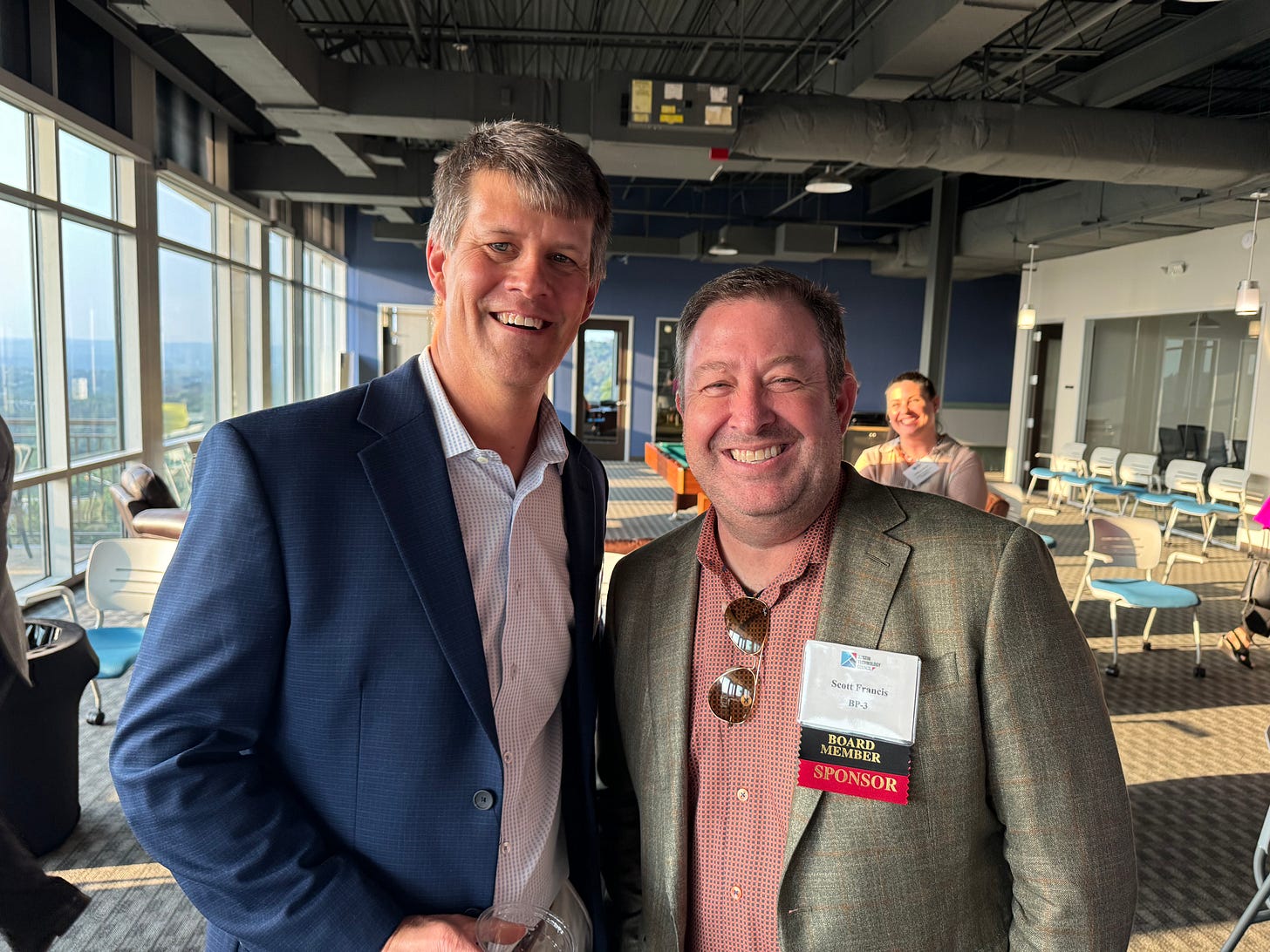How We Hired Our First CFO (Using the Best Recruiting Process I’ve Ever Seen)
A Deep Dive into Executive Recruiting through the story of our first CFO recruitment process at BP3
I’m continuing a series here to share what I learned from my career over the last 30 years, beginning with a deep dive on recruiting processes for companies like the ones I worked for. I recently started Westslope Advisors to manage my advisory and board work. If I can help you or someone you know, put me in touch!
Preamble
I’ve been interviewing and hiring high-performing professionals, engineers, and executives throughout my career. I think that too few people, and too few companies, really understand what it is to have a successful recruiting operation.
My hope is that you will use what I’ve learned to improve your own recruiting processes or to get inspiration to try new improvements to your process.
My belief is that every business can evolve a top-notch recruiting operation - even small businesses - and I’ll show you how.
There are three phases of a company where the recruiting is very different. Recruiting your co-founders is very different from recruiting your 200th employee.
Let’s focus on Why this CFO Recruiting Process was the Best I’ve ever Seen. .
Phase 1: Recruiting your co-founders
Phase 2: Recruiting early employees, before your business scales
Phase 3: Scaling your team
Deep Dive: Negotiating offers for the win
Deep Dive: Executive Recruiting
This Post: Why This CFO Recruiting Process Was the Best I’ve Ever Seen
The purpose of this post is to tell the story of the best recruiting process I’ve seen. It’s a special case of the Executive Recruiting process. I hope someone will read this and build a recruiting firm based on this process, because I loved it as a client.
This story began as BP3 attempted to hire our first CFO…
The Context of BP3 before we hired a CFO
When Lance Gibbs and I were scaling BP3, we reached a point in 2015 where we wanted professionalize. We wanted to have a board, proper financial guidance (we had good financial execution, but no CFO), and investors in the business to help keep us disciplined. In 2016, Petra Capital invested in BP3 as our first outside investor. And this seemed past time for us to hire a professional CFO in order to professionalize our finance department and our ability to forecast, project, and report on our business to the board.
Our history with finance was scrappy. In the early days I did the books and invoicing, and we hired a bookkeeper to check my work, and a tax advisor to file taxes. Later, we hired an operations person who took over invoicing and the data entry, still relying on a bookkeeper and tax advisor. That then evolved further when we hired a director of Finance to do much of this work, still in coordination however, with outside tax attorney. The “reporting financials to the business” aspect of the job had sat with myself, Lance, and Rainer Ribback for much of those first 9 years.
Our vision for the CFO role was to hire someone that would be a partner to the CEO (at this point, me) in operating and planning the business. There was only one problem.
I had no idea how to go about hiring a CFO.
Now, I’ve worked with a few amazing CFO’s over the years. At Trilogy, we had Wade Monroe and Pat Kelly - two strong CFOs who gave us great business and moral guidance as a company. At Lombardi, we had Bill Willis, a strong-headed CFO, and a great one, along with his successors. Now, how do we find *our* CFO?
I managed to get connected with a couple of candidates through sheer willpower. After interviewing two of them, Lance and I decided we needed real help. We didn’t know what “good” looks like. One of our board members referred us to a recruiting agency that had a unique model he had seen used at another firm they invested in. I hired that agency after interviewing them, as I loved what I heard.
The basic idea was that you find the candidates, and the recruiting firm does the deep-dive due-diligence.
This is the opposite of what I’ve experienced with most recruiting firms, where they bring you the candidates, but the deep-dive is squarely in your court to do as the hiring company. And since we didn’t really know how to interview a CFO effectively, this approach really suited our needs quite well.
The Process
First step, was for them to help me write the job description that I would share with everyone. We decided we were interested in VP of Finance trending toward CFO, or CFOs who understood services. We were willing to grow with a CFO rather than require someone to come in with everything under the sun. You’d be surprised how much work goes into writing a good job description.
Then, they wanted me to share this job description with my network - make a list of every CFO- or Finance-type person I knew, and get the word out to see if they’re interested or if they know someone who could be interested. Equally, leverage LinkedIn and people in my network to get recommendations. So I did.
It worked! I received recommendations from vCFO, from top CFOs around town, and from finance colleagues I had worked with in previous lives at Lombard or Trilogy. I reached out to people I knew that I thought might like to step up from #2 on the finance team to the number 1 spot.
Next, we took all of the referrals and passed them on to the recruiter for analysis.
In this phase, the recruiter put a dossier together on each candidate, and reached out to each one to see if they would be interested, explaining that they had been recommended by myself or by whomever had recommended them.
The recruiting firm interviewed each person - first a light overview. Then, for the ones that tested well, a deeper dive.
At this stage, they showed me who they thought had potential and explained why, and asked me to make any adds or deletes. It was collaborative but I trusted their process because I understood it.
Finally, they came to Austin and did in-person deep dives with each candidate. At this point they had researched each prior job and done background checks with their references on how they performed - and how the company performed while they were there in the CFO / VP seat.
They came to me with finalists. And why. And dossiers that looked like the CIA had put them together for a top secret clearance.
Lance and I and our finance team interviewed the finalists. All I can tell you is, the dossiers matched the interviews, and I’ve never been so informed going into a final round of interviews as I was for this final round, thanks to the process our recruiting firm ran.
We offered Corey Blahuta the job, which he accepted, and performed fabulously. over the next 5-6 years!
I asked our recruiter why he was so focused on company performance during a CFO’s tenure, and our recruiter’s response was telling: because it is the CFO’s job to look after financial health of the businesses they run. Full stop.
When I asked Corey about the process, he also noted that the recruiter had been through his job history with a fine toothed comb - he’d not seen a process like that before.
Corey went on to help us restructure the business, manage debt and credit, manage us through another investment (this time from Horizon Capital) and managed through two acquisitions. He reset all of our corporate insurance and security standards (IT reported into him). He was even a good shepherd for HR issues because he was bought into the culture.
And he was absolutely the partner in business that I’d been looking for.

Summary
I’ve never seen a recruiting process before where the hiring firm generates all the candidates, and the recruiting firm does substantive background checking and evaluation to provide back to the hiring firm for decision-making. It was incredibly effective.
Years later I reached back out to the same firm to try to hire Corey’s successor. Sadly, they no longer employed that method as the partner in the firm who did had moved on (into a CFO role! No wonder he was so good at this!)
One more thing…
Apparently some bozos are trying to bring 996 to the United States, according to Fortune’s email newsletter. Bozos is my word, not Fortune’s.
The idea is that these AI startups are telling the people they hire that they expect 996 levels of dedication to the company to run fast and break things. From the article:
“From some companies doing executive searches, I’ve heard that some AI companies––not universally but in specific instances––are looking to include 996 clauses in employment contracts,” said Jen Holmstrom, Notable Capital partner. “I thought that was fascinating, and it stood out as something I hadn’t heard before. I think the intent is that founders want to convey the intensity of the environment, and the need for talent that’s not only extremely capable or high potential, but willing to jump in and do whatever it takes.”
I want everyone reading this to just pause for a moment. These are AI startups. Many of whom will tell you how much of the code and the work is done and automated by AI.
So why are they working so hard?
I’m no stranger to working hard. I probably shortened my life by working so many hours in my 20’s and pulling too many all-nighters to meet deadlines. I never felt like someone was forcing me to do it - I’m just the kind of person that commits to get something done and then feels obligated to do it - on time. This led to opportunities to work 80 hours a week for years on end. At Trilogy, a company famous for its long hours of work (and sometimes partying after work), I sometimes put in 1000 hours of additional work over the next highest total tracked in our consulting practice. That’s not healthy.
If you’re a workaholic, be careful what jobs or companies you choose to work for.
In hindsight, I don’t have regrets - I loved the work. But I would have liked to have kept up with tennis or ultimate frisbee - hobbies that went by the wayside for 7 years. It was fun to get back to them later on!
But let’s not let companies give our kids or colleagues contracts for 996. Working 9am to 9pm, 6 days a week is working harder, not smarter. If AI automates the busy work, then that puts a greater value on our decisions we make, and our wisdom. Science has proven that those who are overworked (or under-slept), make poor decisions, have more car accidents, and write more bugs into their software.
If AI is doing so much, we want our humans well-rested and thoughtful for the job, not worn down to the bone.


